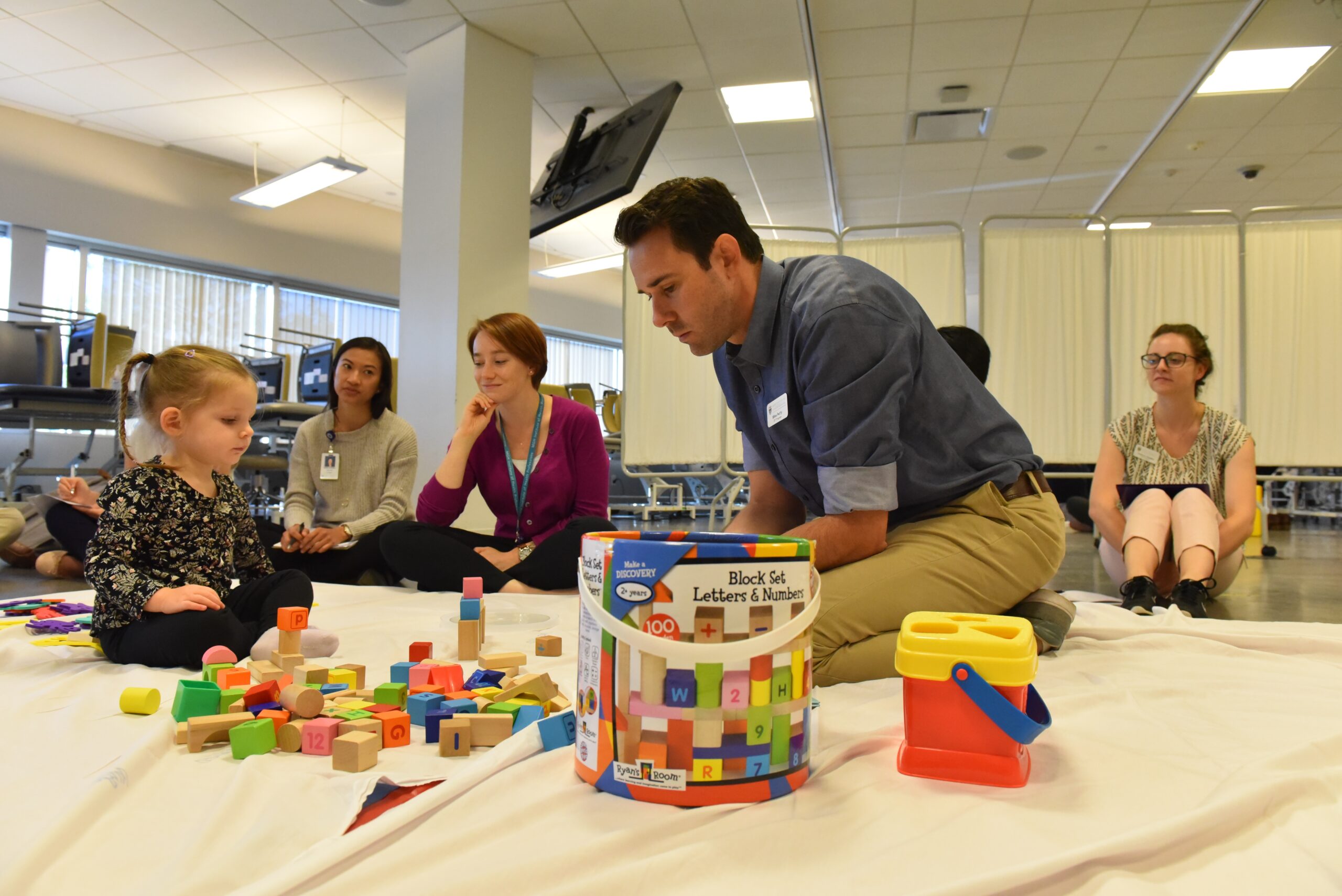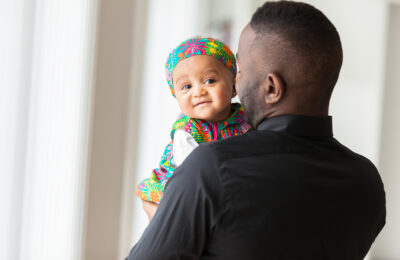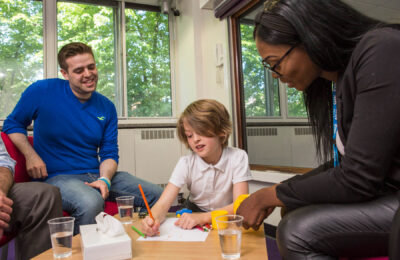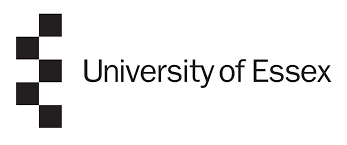
Perinatal, child, adolescent and family work: a psychoanalytic observational approach (M7B, Birmingham)
Join us on one of our flagship observation courses and benefit from over 100 years of expertise
Intrigued by this training? Join the course team for a free, online open evening on Tuesday 21 May from 7.30pm – 9.00pm. To register and receive a joining link, please email info@btpp.co.uk.
This flagship course aims to provide professional development to people working with children, young people and families. The focus is on learning how to notice and reflect on the different emotional dynamics, conscious and unconscious, that underpin development, and impact on our work.
There is a central place in all the studies in the course for considering the impact of feelings of sameness and difference, and about cultural diversity, within ourselves, in our treatment of each other, and in our professional relationships.
This course will provide you with the opportunity to explore unconscious processes which occur within, and between, people across the age range and within, and between, organisations. The infant and young child observations take central place on the course and are rooted in experiential learning about the processes set in motion in the earliest stages of life, which we understand as underlying and informing our later psychological development.
You will take modules in infant observation, work discussion, psychoanalytic theory, child development research, young child observation and experiential group (PG Dip only). To achieve the MA award, students in the third year will write a dissertation. The course will develop the professional and reflective capacities of students working with children of all ages and with families.
In 2023, we changed the course title to explicitly include perinatal work, reflecting the strong emphasis placed upon very early experience. At that point, we augmented the course curriculum with new theoretical content relating to the perinatal period. This additional material enhances your learning from the two-year infant observation, contributing to the opportunity for in-depth understanding of the baby’s changing modes and patterns of communication and their developing personality in the context of their family and the people around them.
The enhanced course, with its renewed focus on the developing mind of the baby, is highly relevant to those working with any age group, and will also benefit those who are working directly with children under the age of five.
Successful completion of this course is a prerequisite for our clinical course in Child and adolescent psychoanalytic psychotherapy (M80).
This course is also delivered in London as a daytime, a Saturday and a Monday and Wednesday evening version, as well as in Belfast, Bristol, Florence, and Milan.
The deadline for applications to this course is provisionally set for Monday 8 July 2024. However, we encourage you to submit your application as soon as possible, as spaces are limited and can be competitive.
Please note: you may see the M7B course also referred to as PAMABH007 in communications from our application system.
About this course
Infant observation
You will observe a baby in its family home, every week for one hour, for up to two years. You will have one (PGCert) or two (PGDip and MA) years of mixed first and second year student small group seminars, learning about early emotional development. It is your responsibility to arrange this observation, but you will be given guidance and support with this task prior to starting the course.
Work discussion
One (PGCert) or two (PGDip/MA) years of mixed first and second year small group seminars where you present detailed observational accounts of your own work, building an understanding of the unconscious dynamics at play at both institutional and interpersonal levels.
Psychoanalytic theory
You will study core psychoanalytic concepts and texts, and their connections with your observation-based learning, with a specific focus on a critical understanding referring to cultural diversity.
Child development research
You will study selected key concepts and theories from a range of research fields – attachment theory, neurobiology, developmental psychology and anthropology.
Young child observation (PGDip/MA only)
One year of small group seminars, supporting you to observe a pre-school child, in their family or nursery setting, to learn about the emotional meaning of a child’s behaviour as they start to relate to others outside the family. It is your responsibility to arrange this observation, but you will be given guidance and support with this task at the start of your second year of the course.
Experiential group (PGDip/MA only)
An opportunity to experience, observe and reflect on group dynamics as they occur in a group that you are a member of.
Dissertation (MA only)
Creating a dissertation proposal and building this into a 12,000-word thesis, exploring aspects of your observational studies in the course.
Course length and study modes
Students may exit after one year with a postgraduate certificate (PgCert) or after two years with a postgraduate diploma (PgDip). To achieve the MA award, students in the third year will write a dissertation.
The first two years are a prerequisite for our clinical training as a child and adolescent psychoanalytic psychotherapist. The first year may also act as a prerequisite for clinical training as a psychodynamic psychotherapist working with children, young people, and families.
Who is this course for?
This course is for anyone working with children, young people and their families with an interest in emotional development and in the complexities of the relationships that form within such work.
Course details
To undertake this course, we ask that you have:
- a minimum of the equivalent of twelve months full-time experience of working with children, young people and their families. Approximately half of this work must have been completed within the last five years.
- an interest in learning about unconscious processes, emotional development, observation, and psychoanalytic thinking
- a willingness to engage in thinking about the way that culture and individual/group identity shape emotional development
- a willingness to engage in experiential learning
- a first degree or the ability to demonstrate that you can meet the academic demands of the course and/or have completed one year of the Tavistock and Portman course Emotional care of babies, children, young people and families (EC1)
For the duration of the course, you have to be working directly with children, young people, parents or families, usually for a minimum of one day a week for students with considerable prior experience or two days a week for students with the minimum of prior experience.
In order for you to be able meet the academic requirements of this master’s programme your work must be in an organisation with a safeguarding lead.
You must be in a working role which meets all the course requirements prior to enrolment.
Home (2024/25)
£3,850 per year for first and second year. Third year fees are £1,850.
International (2024/25)
£7,700 per year for first and second year. Third year fees are £3,700.
You will be charged course fees for each year of your course. If your course is longer than one year, the fees that you will be charged after the first year will be subject to an annual inflationary increase. This will either be an increase of 3% or the Consumer Price Inflation as on 1 September of that year – whichever is the greater. At its discretion, the Trust may determine a figure between these two rates. Please refer to our Student Fees & Refund Policy for further information.
Financial support may be available to help you fund your studies at the Tavistock and Portman NHS Foundation Trust.
Assessment
In the first two years of the course there are written assessment tasks relating to each of the modules studied.
In both years, the written assessment tasks require the integration of detail from observational and work discussion material with theoretical concepts drawn from psychoanalysis and other fields of child development theory.
In the first year, you will also complete short essays on concepts studied in psychoanalytic theory and in child development research. Progression in the course is dependent upon passing this assessed work.
To gain the master’s award, you need to pass the postgraduate diploma of study and then undertake a third year of study to complete a dissertation.
In this dissertation year, you attend a specific seminar for the first term to develop your dissertation proposal. This proposal is based on a question or theme drawn from your earlier studies in the course. In this thesis you will draw upon observational material gathered through your infant observation, young child observation or work discussion studies.
Once the proposal has been accepted you complete the dissertation through personal study, supported by your dissertation supervisor.
Attendance
The course is run on Fridays between 12.45pm and 3.30pm (in the first year) and from 12.45pm to 5pm (in the second year). Theory is taught across nine Saturdays between October and March (exact dates to be confirmed).
Please note that you will also need to set aside one hour each week for observation of an infant and/or young child during the first and second years of the course. It is your responsibility to arrange these observations, but you will be given guidance and support with this task prior to starting the course.
Graduates have used this course to deepen and develop their work with children and families and apply their practical observation skills and a psychoanalytic lens to their practice in a range of professional contexts, including their current work and volunteering settings.
Many graduates have used this course as a prerequisite for training as a child and adolescent psychotherapist on the course, Child and adolescent psychotherapy (M80).
Some have progressed to senior practitioner and specialist posts within their own professions and continue to develop their psychoanalytic practice through CPD work discussion groups, using their new skills to increase confidence and potential promotion opportunities.
Why study with us?
Infant observation was pioneered at the Tavistock Clinic and is a hugely effective method used by clinicians, worldwide. Join us and benefit from our expertise and develop your skills in detailed observation of infants and young children. You will improve your understanding of human development informed by a psychoanalytic approach and child development research.
The application of observation skills to understanding your task and interactions in your work setting will also be central to your learning on the course. This course will provide you with a wider frame of reference for thinking about current work and enhance your capacity to make decisions about your career development.
This course, or its equivalent, is a prerequisite for training as a child and adolescent psychotherapist on the course, Child and adolescent psychotherapy (M80).
Testimonials
Course facilitators
Validations and accreditations
This course is validated by the University of Essex.
Register your interest
Applications are now closed. Register your interest and be the first to hear when this course reopens.
Recommended courses
Explore courses to study beforehand
- Graduate diplomaEligible for Student Visa

Emotional care of babies, children, young people and families (EC1)
-
 Postgraduate certificate Eligible for Student Visa
Postgraduate certificate Eligible for Student Visa
Child, adolescent and family mental wellbeing multidisciplinary practice (D24)
Explore courses to study next
-
 Professional doctorate Eligible for Student Visa
Professional doctorate Eligible for Student Visa
Child and adolescent psychoanalytic psychotherapy (M80)
